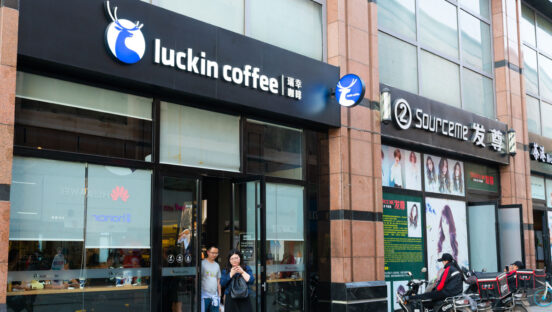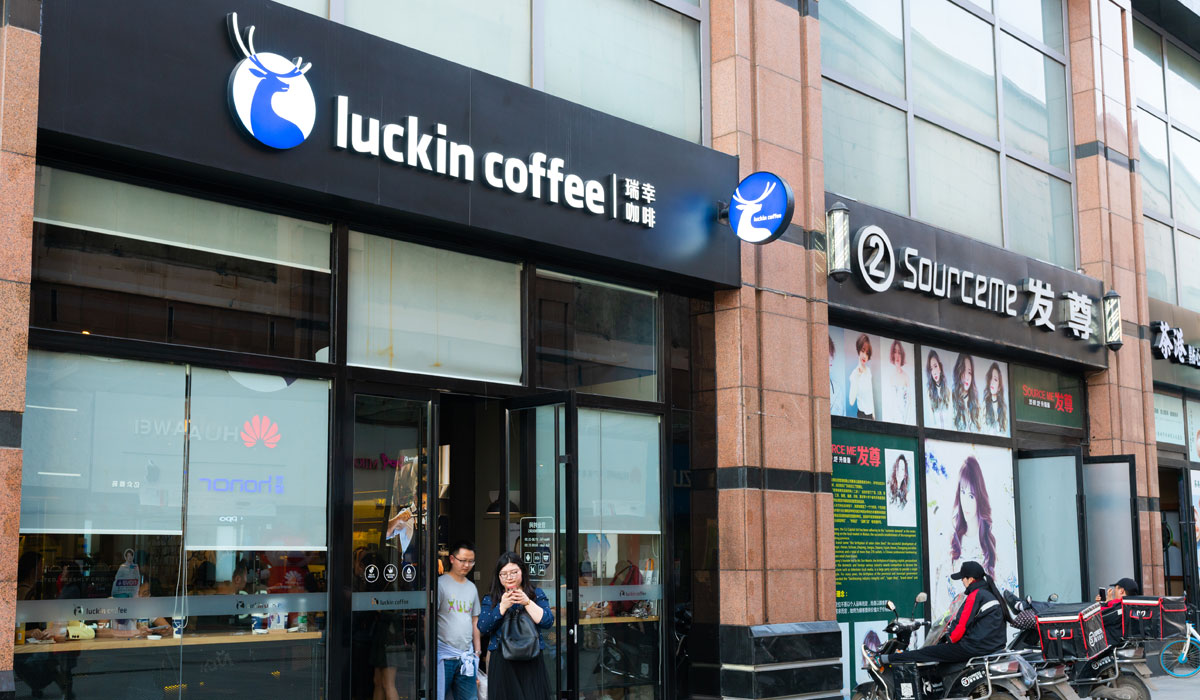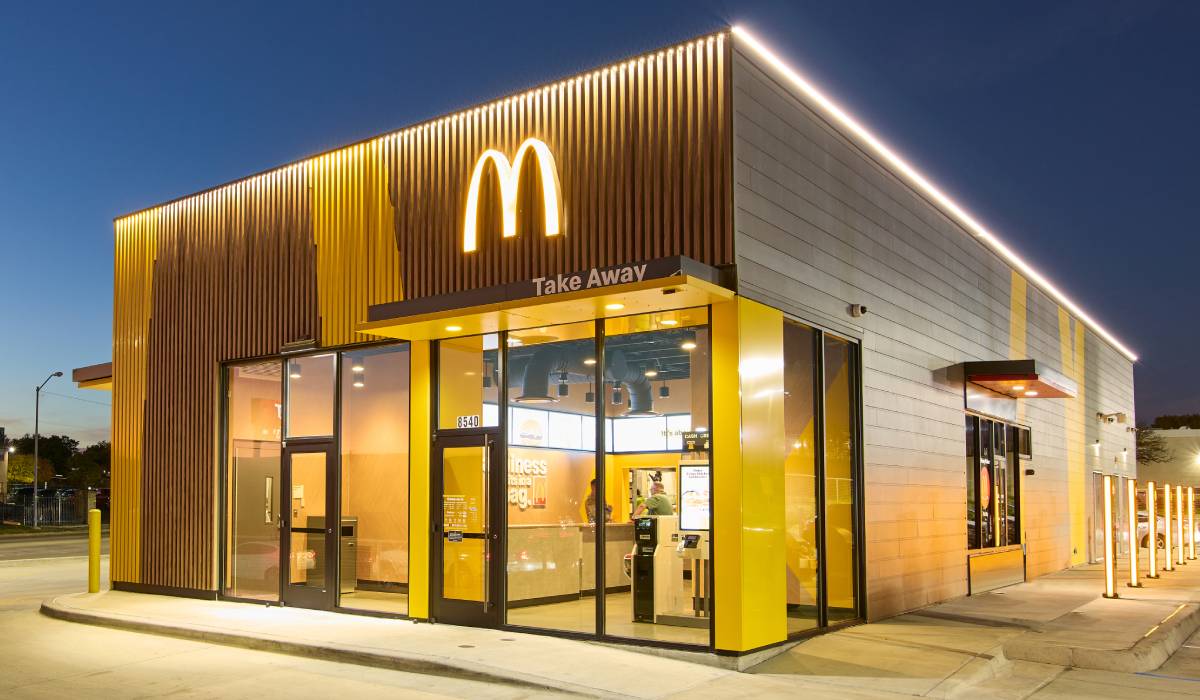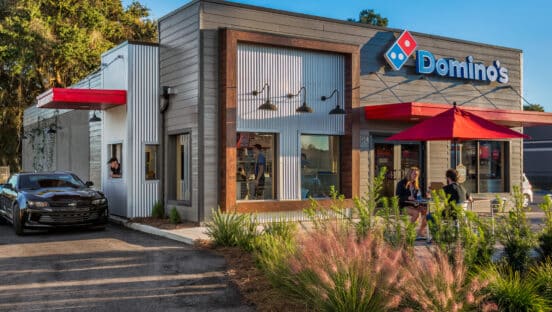Luckin Coffee, a Chinese chain often labeled a threat to Starbucks’ market share in the region, could be in hot water after short seller Muddy Waters received an 89-page, anonymous report alleging several instances of fraud.
The report, which the investment firm posted to its Twitter account Friday and said it finds credible, claims the number of items per store was inflated by at least 69 percent in 2019’s third quarter and 88 percent in Q4. The document said its evidence is supported by more than 11,200 hours of videotaping. According to the writers of the report, they used 92 full-time and 1,418 part-time staff to run surveillance and record traffic in 620 stores.
The document includes photos of customers and receipts and several charts as it elaborates the findings. Muddy Waters did not indicate on Twitter how it received the report.
“When Luckin Coffee went public in May 2019, it was a fundamentally broken business that was attempting to instill the culture of drinking coffee into Chinese consumers through cut-throat discounts and free giveaway coffee,” the report stated. “Right after its $645 million IPO, the company had evolved into a fraud by fabricating financial and operating numbers starting in [third] quarter 2019.”
Another accusation includes Luckin inflating its net selling price per item—traced to 25,843 customer receipts—by 12.3 percent to artificially sustain its business model. The document states the store level loss is 24.7–28 percent, and that excluding free products, selling price was 46 percent of listed price, not the 55 percent claimed by management. The report also states Luckin exaggerated its Q3 advertising expenses by 150 percent so it could use those overstated funds to inflate revenue and store-level profit.
The document dives into red flags surrounding Luckin, such as independent board member Sean Shao, who the report states is/was on the boards for “some very questionable Chinese companies listed in the U.S. that have incurred significant losses on their public investors.” Then there’s chief marketing officer Fei Yeng who was previously sentenced to 18 months in prison for illegal business operations.
The authors attacked Luckin’s business model, stating the company’s goal to target “core functional coffee demand” is misguided because China’s caffeine intake of 86 mg/day per capita is already similar to other Asian countries, with 95 percent of the intake from tea.
In a statement released Monday, Luckin “categorically denied” the anonymous report.
“The methodology of the Report is flawed, the evidence is unsubstantiated, and the allegations are unsupported speculations and malicious interpretations of events,” the company said in a statement. “The Report also attacks members of Luckin Coffee’s management team, shareholders, and business partners and its claims are either false, misleading, or entirely irrelevant. Furthermore, Luckin Coffee believes that the Report demonstrates a fundamental misunderstanding of the Company’s business model and operating environment. Luckin Coffee intends to take appropriate actions to defend itself against these malicious allegations and to protect the interests of its shareholders.”
Luckin’s press release specifically referred to some of the allegations as unsubstandiated, ungrounded, and flawed. The chain further stated that it’s committed to providing acurate disclosures to investors and rebutting false claims.
“Luckin Coffee firmly stands by its business model and is confident in benefiting from the strong growth of China’s coffee market in the future,” the company said. “Luckin Coffee’s pioneering business model has enabled the Company to become the leading and fastest growing player driving coffee consumption in China. Supported by its disruptive new retail model, diversified product portfolio, and strong financial position, Luckin Coffee will continue to grow its business, provide a superior customer proposition, and deliver sustainable value for its shareholders over the long-term.”
Citron, another short seller, denied the accuracy of the report on its Twitter account, as well. The company said it also received the document, but noted that “calls with competitors confirm financials” and that Luckin’s business is “on fire in China.”
Luckin was founded in Beijing in 2017 and has since grown to more than 4,500 stores. Luckin went public in May 2019, raising roughly $571.2 million in the IPO. The coffee chain takes the cashier-customer interaction out of the equation by handling the entire purchase process through its apps. More than 90 percent of its units are pick-up stores around office buildings and universities to target its millennial customer base.
The allegations have proven to be a compounding issue, with the chain’s stock already down because of the coronavirus outbreak in China.










